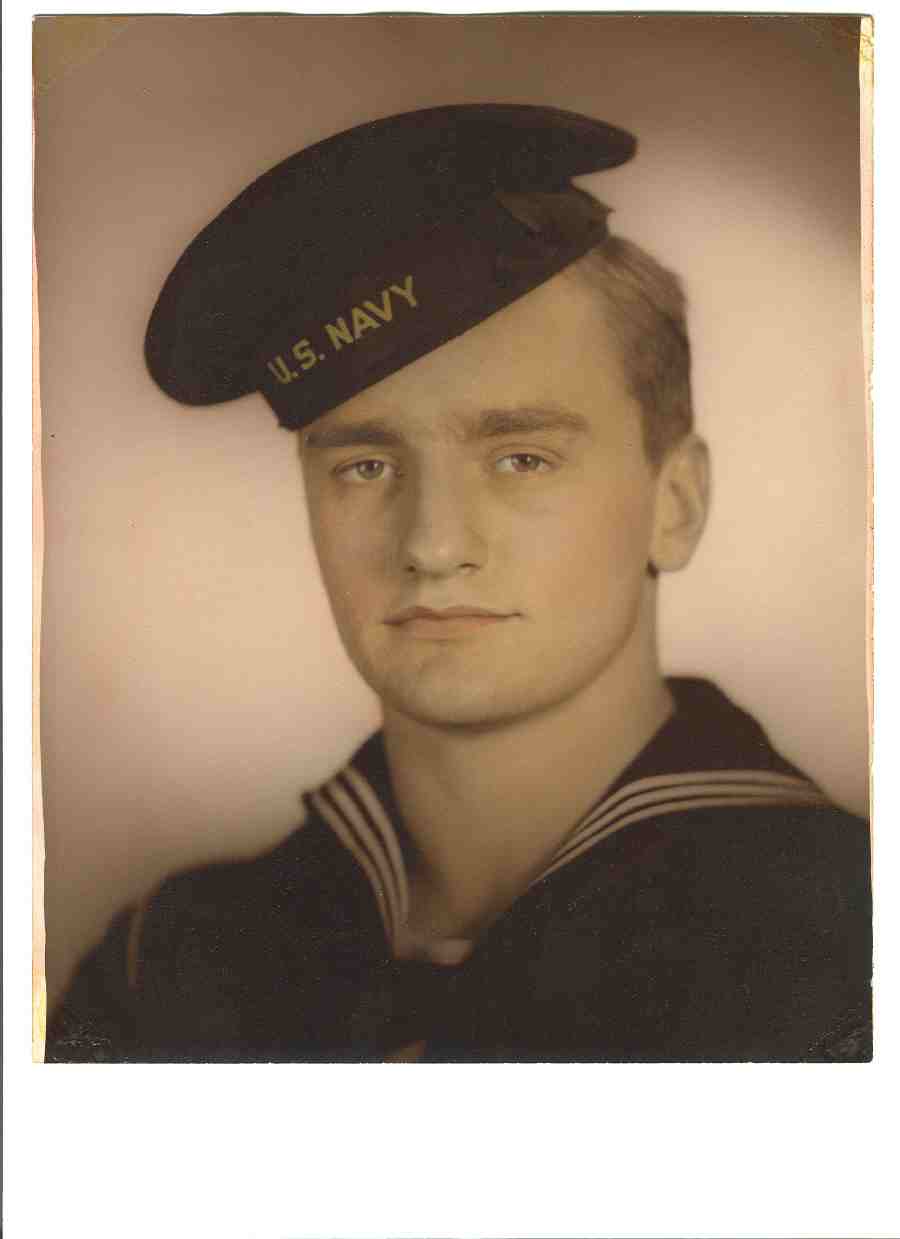Recalling an Earlier Time
It was 1939. I was twelve years old. My parents and younger brother Rob had that year relocated from an apartment in Brooklyn, New York, to a small red brick house in Allendale, New Jersey, that was owned by my mother�s parents.
Within the ensuing year, our family fabric was dealt a devastating blow by the sudden death of my father. While he had successfully managed to hold on to a responsible job throughout the depression years, when he died he had only a small amount in the bank and left my mother little beyond a five thousand ($5,000) dollar life insurance policy and a 1939 Chevrolet sedan. Mom was determined to get a job. She went to business school and updated typing and shorthand skills she had mastered before she met my father. She was offered and accepted a position as a secretary from dad�s employer, the Westinghouse Elevator Company, with a starting pay of forty dollars ($40.00) a week. She arose each working day at 5:45 a.m. in order to catch the 7:12 a.m. Erie Railroad steam powered train to Jersey City, returning to the Allendale station at 6:45 p.m.at night. From Monday through Friday my determined and energetic grandma prepared all the meals, did the laundry and ran the household. She also kept a wary eye on the activities of my brother and me.
It was our good fortune in the sad months that followed the loss of our father that we received comfort from family members who were ready to help when called upon. In large part they made it possible for my brother and me to regain much of the sense of security that had been undermined by my father�s death.
Help came from another quarter. John McNally and his three younger brothers had also recently moved to Allendale from the New York City area. The O�Neil and MCNally boys lived less than a quarter of a mile apart, allowing the organization of a game of touch football in the fall or a hockey match in the winter on short notice.
We had much in common. We were all raised and greatly influenced by a loving mother and no-nonsense but caring grandmothers. Money was tight. John�s family raised chickens that provided eggs for breakfast and drumsticks for Sunday dinner. The O�Neil boys were nourished in large part by the output from their grandpa�s wartime �victory garden� preserved in airtight glass jars by our enterprising grandma.
We all attended Ramsey High School, which was housed in a solid brick structure, styled with attractive colonial architecture. It had been built in the 1930's with W.P.A. money distributed under F.D.R.�s new deal. My class was largely made up of white anglo-Saxon Protestants with but a sprinkling of Catholics, a solitary Jew, and not a single African American out of the some 130 incoming students.
In my senior year at Ramsey High, I played on the varsity football team and had a girl friend. Despite the limitations imposed on travel by gas rationing, my mother would often let me drive the family car on dates. Life had taken a decided turn for the better.
It was the spring of 1945; the Second World War was winding down. The Germans surrendered in May but the Japanese adamantly refused to put down their arms. My idyllic life was soon to change. I faced the unpleasant prospect of being drafted. Since the role of infantryman held little appeal, I enlisted in the Naval Reserve, and was sent to the Great Lakes Naval Training Station where I was scheduled to learn how to be a radio technician, a vocation for which I had virtually no aptitude.

I remember marching on the parade ground on August 15, 1945, nine days after the United States had dropped an atomic bomb on Hiroshima, when a message was broadcast over the loud speaker system telling us that the Japanese surrendered. The release of that powerful bomb into the heart of a city of 350,000 men, women and children was a fearsome moment in history. It would alter how world leaders thought about full scale warfare and would create a nuclear standoff in the rivalry that later emerged between the Soviet Union and the United States. But to rank and file servicemen such as myself, it would mean a welcome return to civilian life.
My boyhood friend John McNally chose a different path. He attended the Naval Academy, made a successful career as a naval officer and rose to the rank of Captain. We both married, raised families and kept in touch over the years.
Last month, eleven of Ramsey High School�s class of 1945 convened in Venice, Florida, to celebrate the four years of our lives that brought us together. It was apparent that we all regarded our high school experience as a special time. Wes Clapp, a retired physician and a man of strong religious faith, said we had been blessed. After tentative greetings.and some hesitancy about connecting names with faces, we soon attained a comfort level. Over the three days we spent in each other�s company, our conversations managed to span the gap of some sixty years. We reminded one another of episodes we had long forgotten. Many provoked laughter; other recollections were poignant. We remembered those classmates who had passed on. Wes formalized the occasion with a prayer. We left telling one another we would meet again next year. It might just happen.
 ONE MORE VOICE TO ADD TO THE GROWING RANKS OF BLOGGERS -----
comments welcome - vincent1@twcny.rr.com
ONE MORE VOICE TO ADD TO THE GROWING RANKS OF BLOGGERS -----
comments welcome - vincent1@twcny.rr.com 
0 Comments:
Post a Comment
<< Home